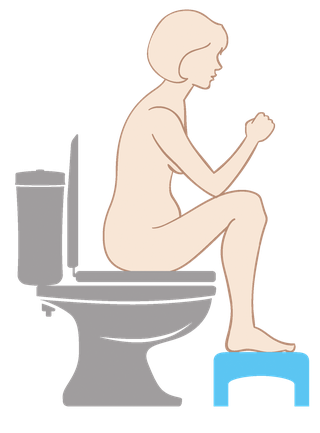Constipation is very common in pregnancy.
It means that your poo:
- is very hard
- may be uncomfortable or painful to pass
- may be unusually small or large
You may also be pooing less often than usual.
There are things you can do to help deal with constipation and prevent it.
Symptoms of constipation
Symptoms of constipation include:
- hard poo
- pooing less
- pain when pooing
- farting
- cramp-like pains in your tummy
- unusually small or large poo
Causes of constipation
Constipation can be caused by:
- not drinking enough water
- not eating enough fibre
- pregnancy hormones - these can make your poo move slowly through your gut
- your growing baby and womb putting extra pressure on your intestines
- taking iron supplements
How to ease constipation
You can ease constipation by:
- drinking plenty of water - try to have 10 glasses of water a day, about 2.3 litres
- eating foods that are high in fibre every day - such as vegetables, wholegrain breads, porridge, fruit, dried fruits, vegetables, beans and lentils
- staying active - try walking, swimming, pregnancy yoga or pilates
- going to the toilet when you first feel the urge to poo - give yourself plenty of time and take some deep breaths to help relax the pelvic floor
Only take iron supplements if your GP or midwife has said you need them.
Healthy eating during pregnancy
Your position on the toilet
Having a good position on the toilet can help when you poo.
- Use a small step or footstool under your feet - this helps you to get into the best position.
- Lean forward, as much as your bump allows.
- Put your elbows on your knees - try and keep your back straight.
- Take long, slow, deep breaths through your mouth to help your tummy muscles relax - do not strain or hold your breath.

Non-urgent advice: Speak to your GP, midwife or obstetrician if:
- making diet and lifestyle changes does not work
- you have blood in your stools (poo)
- you have pains in your tummy
- you are vomiting
They may prescribe a high fibre drink, or other types of laxative to help you poo.
